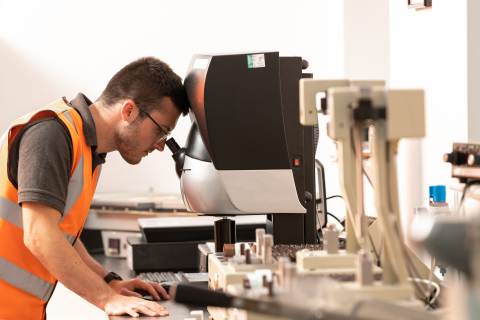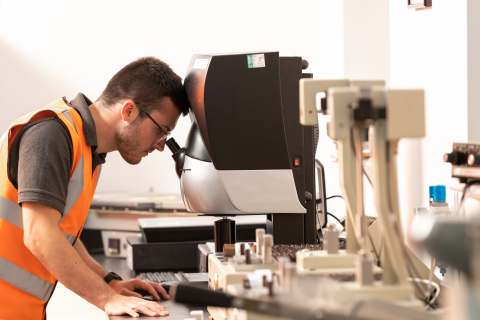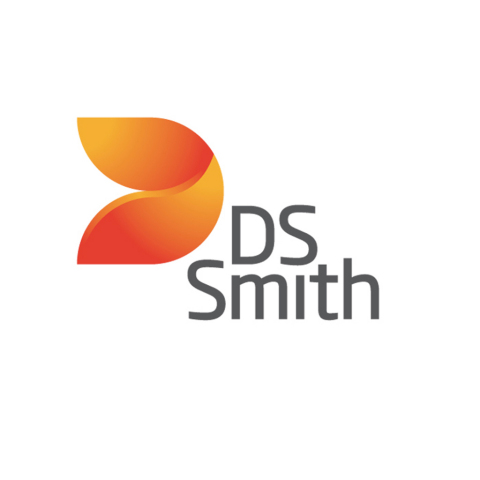ATLANTA--(BUSINESS WIRE)--From a pile of seaweed to a cardboard box.
That’s what sustainable paper and packaging leader DS Smith now is exploring to determine if seaweed fibers can be used as a raw material in paper and packaging products amid increasing demand for recyclable goods from business customers and consumers.
In an industry first, DS Smith could use seaweed across its packaging network as an alternative fiber source to wood. After initial testing, the company also is researching seaweed’s potential role as a barrier coating, replacing problem plastics and petroleum-based packaging used to protect many foodstuffs.
DS Smith announced today it is talking to several biotechnology companies to explore the potential use of eco-friendly seaweed fibers in a range of packaging products, such as cartons, paper wraps and cardboard trays.
“As a leader in sustainability, our research into alternative raw material and fiber sources will help us drive this project forward, looking at seaweed’s strength, resilience, recyclable properties, scalability and cost. Seaweed could have multiple uses with a low ecological footprint that is easily recyclable and naturally biodegradable,” said Giancarlo Maroto, managing director, paper, forestry and recycling for DS Smith North America.
Maroto also said the production process with seaweed could be less energy intensive, with fewer chemicals used to extract the fibers, creating the next generation of sustainable paper and packaging solutions.
The seaweed project is part of DS Smith’s more than $140 million, five-year circular economy research and development program announced earlier this year. The work is designed in part to boost research into alternative fibers and to reduce and eliminate waste.
It’s also looking at potential uses of natural fibers, such as straw, hemp, miscanthus and cotton. Also being tested are more unusual sources, including the daisy-flowered cup plant and agricultural waste like cocoa shells or bagasse - the pulp fiber left over after sugarcane is processed.
Given its wide range of uses, seaweed in manufacturing is a burgeoning market. The European seaweed industry alone is predicted to be worth almost $11 billion by 2030, generating 115,000 jobs.
Seaweed generally is available from commercial seaweed suppliers and farmers, and scientists have explored the uses of multiple types of green, brown and red seaweed. DS Smith said its research will help decide which species has the best qualities for its processes.
The circular economy is central to DS Smith’s Now and Next strategy, focusing on closing the loop through better design, protecting natural resources by making the most of every fiber and reducing waste and pollution through circular solutions. By 2023, DS Smith will manufacture 100% reusable or recyclable packaging and its aim is that by then, all of its packaging will be recycled or reused.
About DS Smith
DS Smith is a leading provider of sustainable fiber-based packaging worldwide, which is supported by recycling and papermaking operations. It plays a central role in the value chain across sectors including e-commerce, fast moving consumer goods and industrials. Through its purpose of ‘Redefining Packaging for a Changing World’ and its Now and Next sustainability strategy, DS Smith is committed to leading the transition to the circular economy, while delivering more circular solutions for its customers and wider society – replacing problem plastics, taking carbon out of supply chains and providing innovative recycling solutions. Its bespoke box-to-box in 14 days model, design capabilities and innovation strategy sits at the heart of this response. Headquartered in London and a member of the FTSE 100, DS Smith operates in 34 countries employing around 30,000 people and is a Strategic Partner of the Ellen MacArthur Foundation. Its history can be traced back to the box-making businesses started in the 1940s by the Smith family.
North American operations are headquartered in Atlanta, with 13 manufacturing, paper and recycling facilities, totaling more than 2,000 employees. Using the combined expertise of its divisions – including Packaging, Recycling, Paper – DS Smith works with customers to develop solutions that reduce complexity and deliver results throughout the supply chain.




